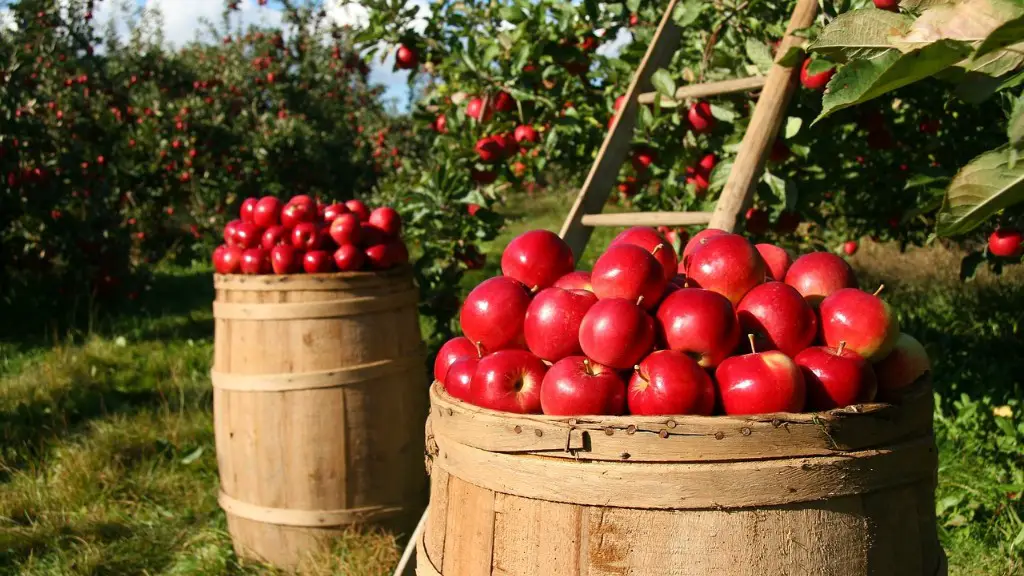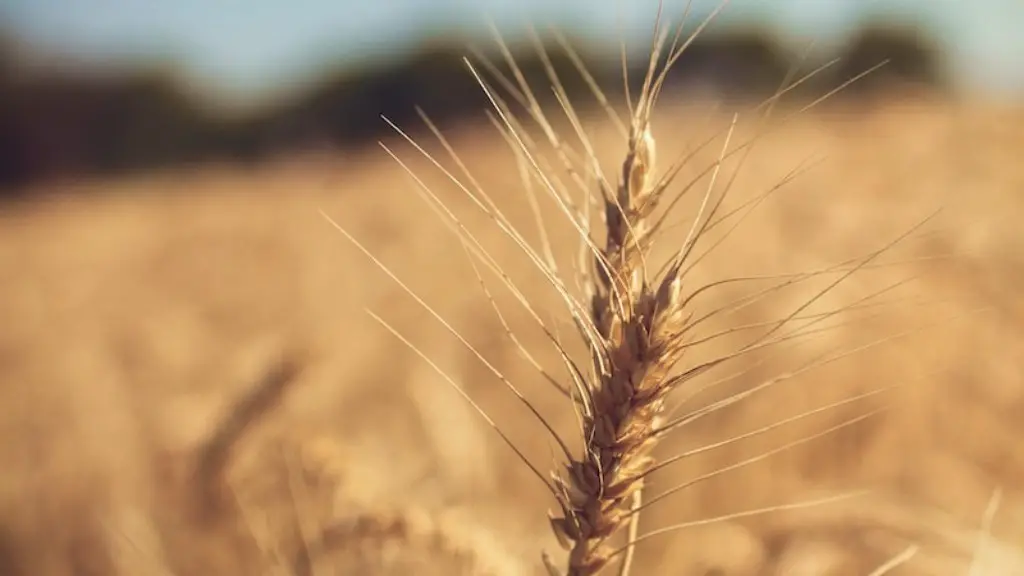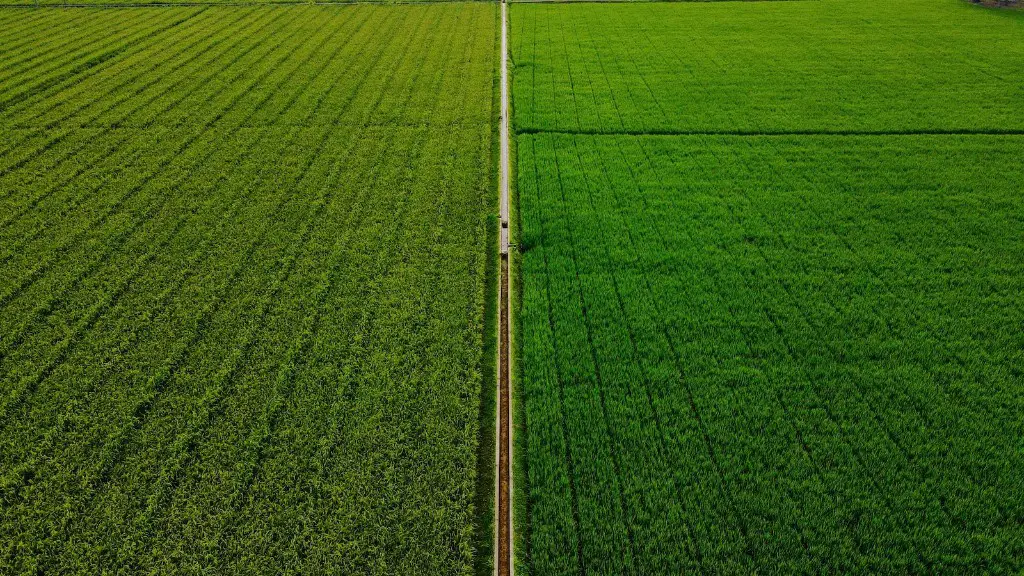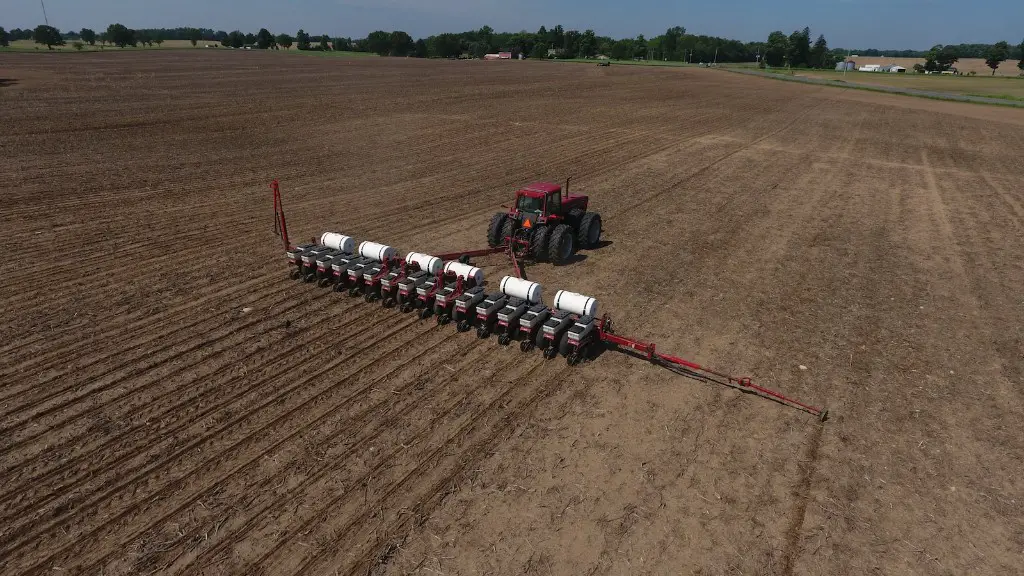Prehistoric humans were able to advance their societies by developing agriculture. This allowed them to cultivate and domesticate plants, which led to the domestication of animals. Agriculture allowed for the growth of cities and the rise of civilizations. It also allowed for the exchange of goods and the sharing of ideas between cultures.
Agriculture allowed for the domestication of plants and animals, which led to the development of permanent settlements and the growth of civilizations. Agriculture also allowed for the growth of food surpluses, which allowed for the development of trade and commerce, and the growth of cities and states.
Why is agriculture important to early humans?
The availability of food is one of the key factors in supporting population density. With more food available, people are able to settle in closer proximity to one another, leading to the growth of towns and cities. Agriculture also allowed people to become less reliant on hunting and gathering, freeing up time to pursue other interests.
When early humans began farming, they were able to produce enough food that they no longer had to migrate to their food source. This meant they could build permanent structures, and develop villages, towns, and eventually even cities. Closely connected to the rise of settled societies was an increase in population.
How did the Agricultural Revolution change life for early humans
The domestication of plants and animals was a major turning point in human history. It allowed for a more reliable food supply, which in turn allowed for population growth. The nomadic lifestyle gave way to settled communities. This had a major impact on human society and culture.
Farming fundamentally altered the lives of Neolithic people because it allowed them to establish permanent communities. Before this, all human societies were nomadic hunters and gatherers. Farming let them build settled villages. This allowed for the development of civilizations and the growth of cities.
How did agriculture help early humans survive?
The agricultural revolution was a turning point in human history, marking the transition from a nomadic hunter-gatherer lifestyle to a more settled, agrarian way of life. This shift allowed for the development of civilizations and the growth of cities and towns. Agriculture allowed for the domestication of plants and animals, which in turn led to the establishment of communities and the growth of families. Today, agricultural communities are an essential part of the world, providing food and other resources for people all over the globe.
The study found that as farmers began to settle down and cultivate land, they developed smaller jaws than their hunter-gatherer ancestors. This change in jaw size led to dental problems like malocclusion, or dental crowding. The study’s authors believe that this change in jaw size is due to the fact that farmers had access to food that was easier to eat and more time to eat it at their leisure. This change in diet and lifestyle led to a change in the way the human jaw developed over time.
Why was the Agricultural Revolution the most important event in human history?
The Agricultural Revolution was a pivotal moment in human history, setting the foundations for what we now know as modern human life. The ability to cultivate our own food and stay in one general area made life much more manageable, and contributed to the growth of human society in terms of culture, technology, and more.
The Neolithic Revolution was the critical transition that resulted in the birth of agriculture, taking Homo sapiens from scattered groups of hunter-gatherers to farming villages and from there to technologically sophisticated societies with great temples and towers and kings and priests who directed the labor of their people. This transition was a gradual process that took place over thousands of years, and it resulted in a complete transformation of human societies.
What were the benefits of the Agricultural Revolution
The Agricultural Revolution was a time of experimentation with new crops and new methods of crop rotation. These new farming techniques gave soil time to replenish nutrients, leading to stronger crops and better agricultural output. Advancements in irrigation and drainage further increased productivity.
The Agricultural Revolution had a profound and lasting effect on people’s lives. The most important of these was the rapid growth of the population. This was made possible by the increased food production that resulted from the introduction of new and more efficient methods of agriculture. As the population grew, people began to settle into communities, which led to the development of civilizations. The Agricultural Revolution thus laid the foundation for the modern world.
What are three impacts of the Neolithic Revolution on human life?
The Neolithic Revolution was a period of time in which there were significant advancements in the way that people lived. This period was characterized by the domestication of plants and animals, the establishment of permanent settlements, and the development of new tools and technology for farming, warfare, and art. These changes had a profound impact on the way that human beings interact with their environment and the way that they live their lives.
The traditional view is that the shift to agricultural food production supported a denser population, which in turn supported larger sedentary communities, the accumulation of goods and tools, and specialization in diverse forms of new labor. This growth in population and community size allowed for the development of new technologies, which led to further specialization of labor and the rise of civilizations.
What are four ways that life changed for humans during the Neolithic Age
The way we live today is a direct result of the Neolithic revolution, which occurred approximately 11,500-5,000 years ago. This revolution saw the transition from a nomadic, hunter-gatherer lifestyle to a settled, agrarian lifestyle. This transition allowed for the development of laws, cities, and other modern amenities that we take for granted today.
The Agricultural Revolution was a time of great change for British agriculture. New practices like crop rotation, selective breeding, and a more productive use of arable land led to an unprecedented increase in agricultural production. This period of change had a profound impact on British society, giving rise to new economic opportunities and social changes. The Agricultural Revolution was a key factor in Britain’s transformation from a primarily agricultural society to an industrial powerhouse.
What were 2 important results of the Agricultural Revolution?
The Agricultural Revolution was a period of increased agricultural production and technological advancement that occurred during the 18th and early 19th centuries. This period saw a dramatic increase in population growth, as well as new agricultural practices that led to the development of a coherent and loosely regulated agricultural market. The Agricultural Revolution also contributed to the rise of urbanization, as rural populations migrated to cities in search of new opportunities.
Agriculture is important for a variety of reasons. It is the main source of raw materials for many industries, it is important to international trade, it plays a big role in a nation’s revenue, it provides employment, it is crucial to a country’s development, it can help heal the environment, and it goes hand-in-hand with war.
Conclusion
By domesticating plants and animals, prehistoric humans were able to settle in one place and develop civilizations. Agriculture allowed for the growth of cities and the rise of civilizations. It also allowed for the growth of food surpluses, which allowed for the development of trade and commerce.
For many years, agriculture has been an important part of human life. It was one of the first steps in the advancement of prehistoric humans. Agriculture allowed humans to settle in one place, which led to the development of civilizations. Agriculture also allowed for the domestication of plants and animals. This led to a more reliable food supply and the development of new technologies. Agriculture has played a vital role in the advancement of humanity, and it will continue to do so for years to come.





